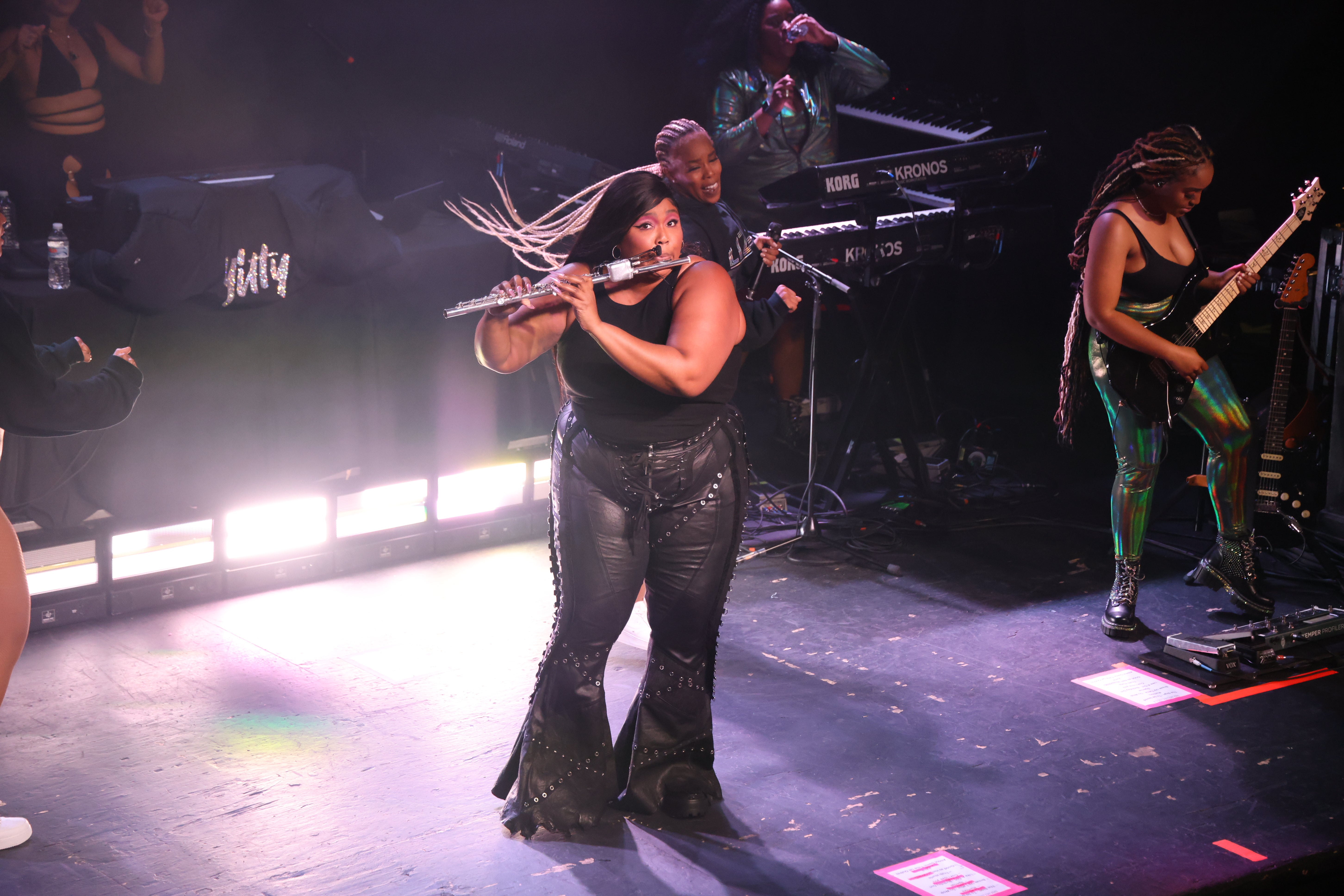Lizzo calls out critics who say she makes music for white people
‘I feel like y’all don’t understand me, y’all don’t know where I came from…’ the singer said
Your support helps us to tell the story
From reproductive rights to climate change to Big Tech, The Independent is on the ground when the story is developing. Whether it's investigating the financials of Elon Musk's pro-Trump PAC or producing our latest documentary, 'The A Word', which shines a light on the American women fighting for reproductive rights, we know how important it is to parse out the facts from the messaging.
At such a critical moment in US history, we need reporters on the ground. Your donation allows us to keep sending journalists to speak to both sides of the story.
The Independent is trusted by Americans across the entire political spectrum. And unlike many other quality news outlets, we choose not to lock Americans out of our reporting and analysis with paywalls. We believe quality journalism should be available to everyone, paid for by those who can afford it.
Your support makes all the difference.Lizzo has issued a rebuke to critics who claim she makes music for a specific demographic.
In her HBO documentary Love, Lizzo, the “Juice” singer explains that she often gets called out for genre-hopping, and said some people have accused her of making music that appeals solely to white people.
Now, she has addressed those views while being interviewed on Tuesday (13 December), calling them “very hurtful”.
While appearing on the The Howard Stern Show, Lizzo was asked about the comments she receives.
“[It’s] very hurtful, only because I am a Black woman, and I feel like it really challenges my identity and who I am, and diminishes that, which I think is really hurtful,” she told Stern.
Lizzo affirmed that her music is for “literally everybody and anybody”.
“I don’t try to gatekeep my message from people. So all three of those things for me, I’m just like, ‘You don’t even get me at all’,” she said.
“And I feel like a lot of people, truthfully, don’t get me – which is why I wanted to do this documentary, because I was like, ‘I feel like y’all don’t understand me, y’all don’t know where I came from…’”
“And now I don’t want to answer no more questions about this s***. I want to show the world who I am,” she added.
The star explained that she felt that her music in fact influenced heavily by Black music from the 1970s and 1980s, defining her sound as “funky, soulful, feel-good music”.

Lizzo recently addressed the same moment from the documentary while being interviewed by Gerrad Hall.
During the interview, the star said that she felt that the genre of pop music was “racist inherently”.
Enjoy unlimited access to 100 million ad-free songs and podcasts with Amazon Music
Sign up now for a 4 month free trial (3 months for non-Prime members)
Enjoy unlimited access to 100 million ad-free songs and podcasts with Amazon Music
Sign up now for a 4 month free trial (3 months for non-Prime members)
The news comes shortly after Lizzo revealed that she was bullied in school for liking rock bands like Radiohead.
“It was a Black school,” she told Vanity Fair in October. “Mostly Black and brown, Caribbean, I had Nigerian friends... They were all listening to what was on the radio: Usher, Destiny’s Child, Ludacris, and I was into Radiohead’s OK Computer.”
“I kept it hidden, even when I was in a rock band, because I didn’t want to be made fun of by my peers – they’d yell, ‘White girl!’” she recalled.
The way Lizzo dressed also became a subject of the bullying: “I was wearing these flared bell-bottoms with embroidery down it – and they’d say, ‘You look like a white girl, why do you want to look like a hippie?’”
“I wanted to be accepted so bad; not fitting in really hurt,” the singer recalled.



